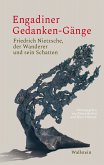This book offers an in-depth study of the rich tapestry of happiness discourses in well-known philosophical novels by Thomas Mann, Franz Kafka, Hermann Hesse and Ernst Jünger, published between 1922 and 1949. The study is prompted, in part, by an awareness that despite the interdisciplinarity of happiness research, Western literary scholarship has paid scant attention to fictionalized constructs of happiness. Each of the four chapters uses extended textual analysis to explore the sites in which happiness (Glück) and serenity (Heiterkeit) are sought, experienced, narrated, reflected upon and enacted. The author theorizes, with particular reference to Bachelard and Foucault, the interfaces between interior and exterior spaces and states of well-being. In addition to providing new interpretive perspectives on the canonical novels themselves, the book makes a significant contribution to a broader history of the idea of happiness through the appraisal of key intellectual cross-currents and traditions, both Western and Eastern, underpinning the novelists' varied and nuanced conceptualizations and aesthetic representations of happiness.
Dieser Download kann aus rechtlichen Gründen nur mit Rechnungsadresse in A, B, BG, CY, CZ, D, DK, EW, E, FIN, F, GR, HR, H, IRL, I, LT, L, LR, M, NL, PL, P, R, S, SLO, SK ausgeliefert werden.


